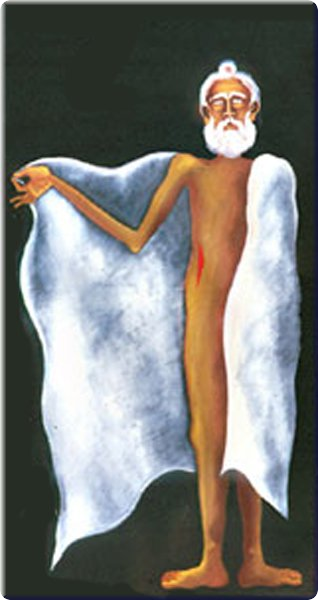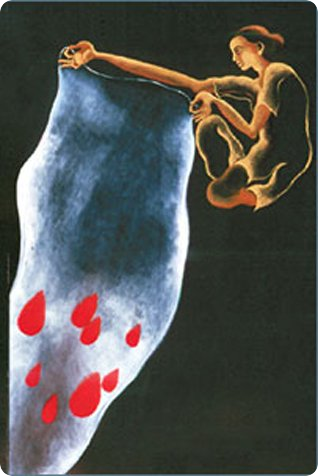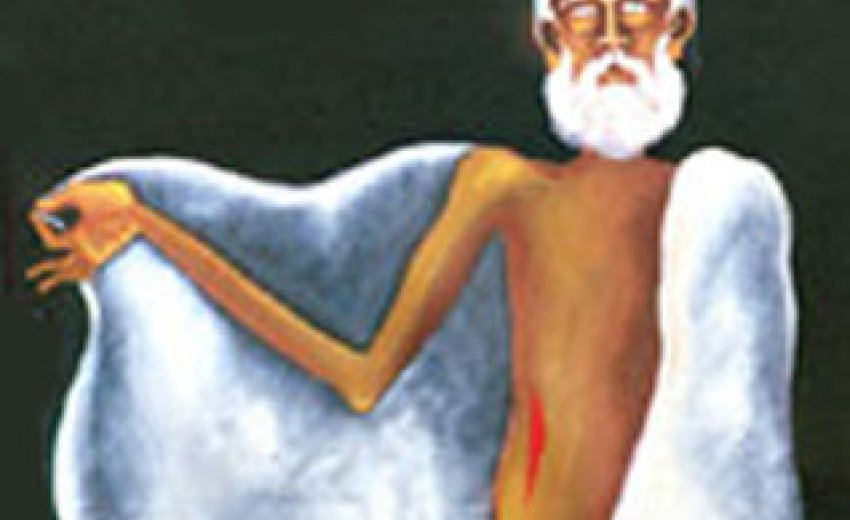1984
This November,
I Try To Speak To Ghalib
JASPREET SINGH
This November I invoke not Waris Shah
but you, Amrita
And through you
I try to speak
to Asadullah Khan Ghalib
the poet laureate of Delhi:
Hain aur bhi duniya mein sukhanvar bahut achhe
Kehte hain ki Ghalib ka hai andaaz-e-bayaan aur
Perhaps I should address
the great (or some say ‘the greatest’) poet directly
My dialogue with nazam-ud
-daula is long overdue
Years ago I used to ‘see’ him
His words would console me, even generate a smile
Unke dekhe se jo aati hai munh par raunaq
Woh samajhte hain ki bimar ka haal achha hai
But that was before he forgot
the river that runs through his city. Someone added poison
to countless eyelids and tongues and took Yamuna by its gullet
The waters blood-reddened just like Chenab
Someone reduced Delhi to cruel squads, a strange Diwali
Dark clouds ascend like Qutab Minars
I am trying to start a conversation with Ghalib
Gallees, mohallas, nukkads glitter, coated white with deathly phosphorous
To this day
shafts of light that fall
over Connaught Place, Rakab Ganj, Yamuna Paar
carry traces of restless particles of ash
Are you embarrassed?
Men who demand reparations
from old colonial masters
(in faux Oxbridge accents)
Their tongues fail
to wiggle
a mere word
when it comes to 1984
Dear poet, in your city
thrive Masters
of Death. Children bask in glory
of triumphant, un-mended elders
Ghalib, where are you?
Tell me elegantly (or inelegantly) how to make sense
of this smoke-filled
melancholy night?
King of nazam, why do you remain un-bothered
by ‘un-mournable’ bodies?
Un-concerned
about ‘cleansing’, rape, injustice?
Come on, it is not enough
to hide behind that melodious couplet
Maut se pehle admi gum se nijaat paye kyon.
Before the onset of death, how can man expect to be free of grief?
You are not just a love sonnet guy,
you saw 1857, churned oceans
of ink then, capturing turbulence
also the slow-lava flow, you made reams of paper come alive
Wake up! Get rid of your soft quilt
And teach us how to stand
on the debris of 1984
Teach us how to tell this un-finished story to children?
I, too, would like to laugh again
Hope again?
Come, poet, say mouthfuls of achhe khayal, Bring radiance
joy, chardi-kala to daughters who stopped weaving
I ask you to console the bare bones
of un-consolable mothers
I ask you to discipline the wayward sons
with the whip of your unflinching words
Sons, who, unlike their perished fathers
find themselves coated
with mud,
hashish and crystal-meth
Ghalib, the perpetrators love
this one line
Ek Brahman ne kaha hai ke yeh saal achha hai
Well, here is a Brahmin, who has decreed this year will be a good one
1984 was definitely a good year
But
only for incurable pigs, who spoke from Red Fort
like failed physicists
Tortured with iron rods
stabbed in their bellies
even ghazals ceased
to name the world
But each year
that followed 84
has been a superb
year for the perpetrator
Of course time has passed. Many things
have changed. The new emperors of Hindustan
have instilled fear even
in stones, including the one that covers your remains
And you ‘Asad’, you shawled ‘lion’
still
refuse
to intervene? Explain!
Say something—
Your reputation is at stake
Time has chosen you
as the sayer of the unsayable
Bol, speak
Otherwise, I will
in my way. And if I fail,
another will
And one bright-sunny day in the future
we will learn to trust poets again, and learn on our own
to stand upright on the debris
of 84. And the buried book will rise again
The buried book will rise again
And it will reveal
to little children playing in the garden
its crisp, un-scorched pages.
* * * * *
NOTES:
Stanza 2
Hain aur bhi duniya mein sukhanvar bahut achhe
Kehte hain ki Ghalib ka hai andaaz-e-bayaan aur
Translation:
“So many good poets in the world, but they say Ghalib’s style is something else.” – Ghalib
Stanza 4
Unke dekhe se jo aati hai munh par raunaq
Woh samajhte hain ki bimar ka haal achha hai
Translation:
“Just a glimpse brings a glow to my face, but they think that the invalid’s condition is getting better.” - Ghalib
Ghalughara: Punjabi word for the crime of genocide.
* * * * *
Jaspreet Singh is the author of Chef and Helium, both novels published internationally by Bloomsbury.
September 28, 2015
|

 |


